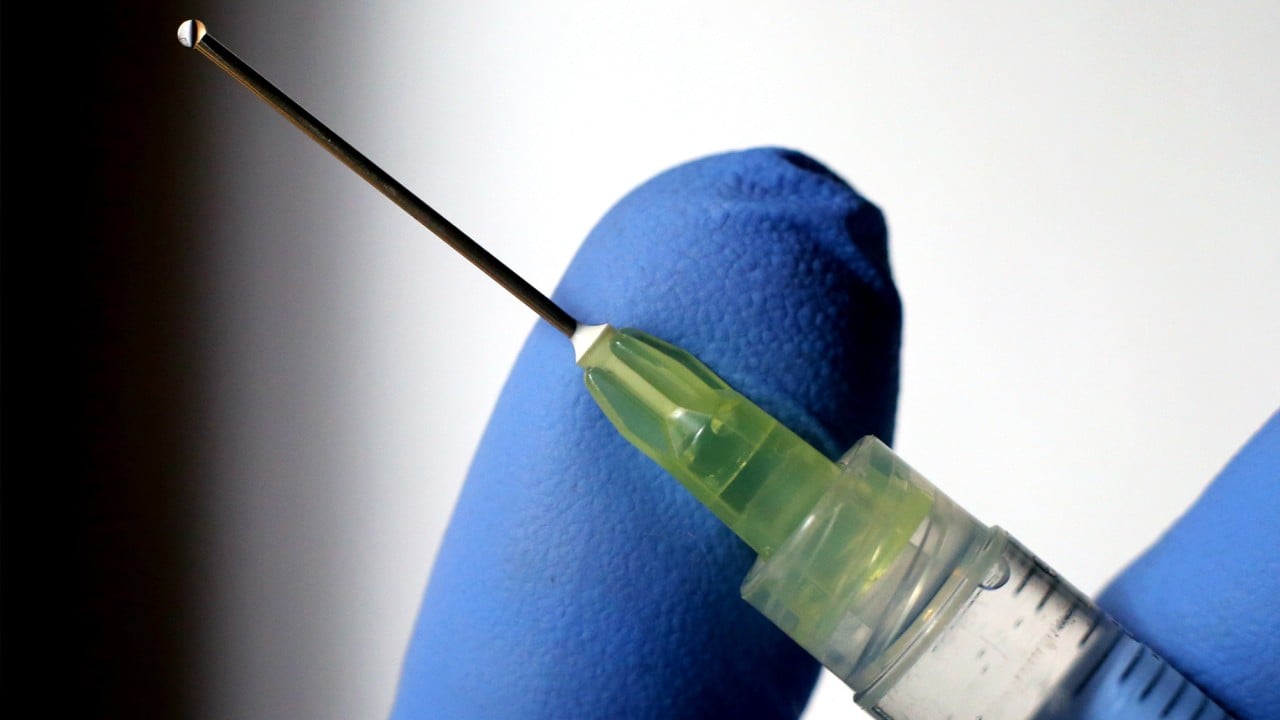
Chinese mRNA booster fights Omicron 4 times better than inactivated Covid-19 vaccines, researchers say
- AWcorna vaccine produced 4.4 times more Omicron antibodies than Sinovac booster, scientists behind clinical trial write in Cell Research journal
- Home-grown mRNA jab could be China’s best bet against the highly transmissible variant, with Pfizer-BioNTech’s version yet to clear regulatory hurdle
The AWcorna vaccine is the latest in a string of Chinese shots seeking to improve public immunity against the highly transmissible strain of the Sars-Cov-2 coronavirus that causes Covid-19, in a country where most residents were inoculated with inactivated doses.
Nearly 90 per cent of China’s population have been fully vaccinated and about 59 per cent have received a booster. But only about 4.8 per cent of the boosted population received a vaccine using a different technology.
“The effectiveness of AWcorna in preventing infection by Sars-CoV-2 and other variants of concern remains to be determined,” researchers behind the study wrote in peer-reviewed journal Cell Research earlier this week.
“[However] the induction of potent neutralising antibodies against wild type [original strain coronavirus] and variants of concern, as well as the affordable safety profile, support the emergency use of AWcorna as a heterologous booster in China.”
What are the coronavirus mRNA vaccines and how do they work?
In a randomised clinical trial, the researchers gave AwCorna to 200 adults primed six months earlier with Chinese-made inactivated vaccines, either from Sinovac Biotech or Sinopharm. Another 100 similarly primed subjects were given the Sinovac vaccine as a booster.
Tests 28 days later showed antibodies against wild type Sars-CoV-2 generated among AWcorna recipients were 3.78 times higher than for the Sinovac booster group.
Omicron sub-variants latest challenge for China’s zero-Covid policy
The gap expanded when testing against the Delta variant, when the levels of neutralising antibodies – an indicator of protection against infection offered by the vaccine – was 6.5 times higher than the Sinovac booster group.
Antibody levels against the Omicron variant were significantly lower for both groups due to a structural change on the spike protein of the coronavirus that facilitates immunity escape. However, those boosted with the mRNA vaccine showed about 4.4 times higher levels of antibodies, the researchers said.
Moreover, more than 83 per cent of AWcorna booster recipients were shown to have developed better protection against Omicron, compared to just 35 per cent of the Sinovac group.
Side-effects were more common among the AWcorna group, with a third developing fever compared to 4 per cent among the Sinovac recipients, and 26 per cent reporting headaches compared to 7 per cent in the inactivated booster group. No serious adverse events were reported in either group.
Sinopharm and Sinovac, whose inactivated vaccines have been the dominant player in China’s inoculation campaign against Covid-19, are also developing Omicron-specific shots.



